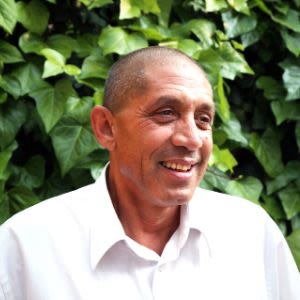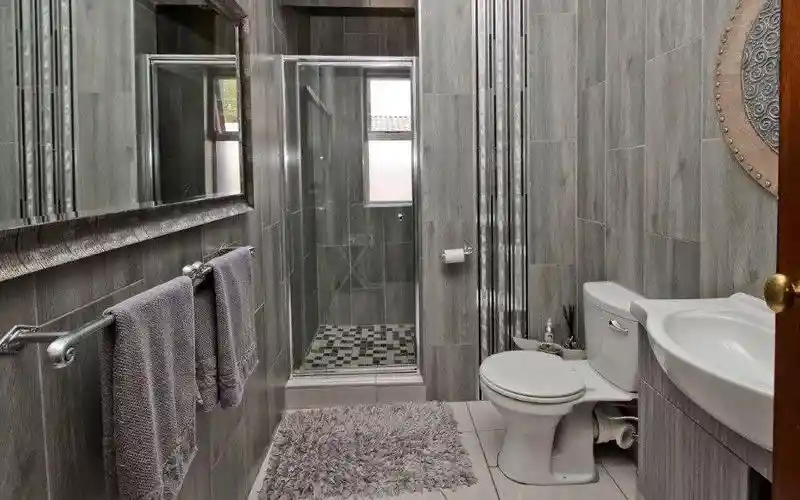Johannesburg, South Africa
Journey Recovery & Wellness Centre
Verified
Verified
This provider’s information has been quality-checked by Recovery.com’s Research Team for accuracy and completeness, including center verification through appropriate third-party organizations.
Estimated Cash Pay Rate
The cost listed here (R58,000 – R85,000/$6,500-$8,500 (per month)) is an estimate of the cash pay price. Center pricing can vary based on program and length of stay. Contact the center for more information. Recovery.com strives for price transparency so you can make an informed decision.
About Journey Recovery & Wellness Centre
Journey Recovery & Wellness Centre is a luxurious rehabilitation and wellness center registered with the Department of Health and the Department of Social Development. They offer private treatment for substance use and co-occurring mental health disorders like bipolar disorder, anxiety, depression, burnout, eating disorders, and other addictive behaviors or psychiatric concerns. Set in a tranquil garden with a swimming pool, they support and embrace clients with a family-like atmosphere. Clients have access to Wi-Fi, Netflix, live sports, DSTV Premium, and their cellphones, laptops, and other devices.
A Full Range Of Compassionate, Quality Care
Journey Recovery runs a non-punitive program, healing with compassion, care, and understanding. Their treatment program includes supervised medical detox, individual and group therapy, trauma counselling, inner-child work, solution focused therapy, Acu-Detox, families and couple counselling, and cognitive behavioral therapy (CBT). Their holistic services include yoga, mindfulness, art therapy, pottery, and self-esteem workshops. They additionally provide meaningful tips and personalized strategies for coping with cravings or dealing with thoughts of relapse.
Affordable And Personalized Treatment
Journey Recovery & Wellness Centre accepts a maximum of 20 clients, creating a 4:1 ratio of clients to clinical staff. Clients receive individualized care and attention, promoting a sense of belonging that Journey Recovery believes is key to effective recovery. After detox and residential treatment, clients can attend sober living and receive daily therapy groups and weekly 1:1 therapy in a substance-free, independent environment. Clients in outpatient attend evening outpatient groups to continue treatment. For clients coming from other countries, South Africa’s Rand exchange rate can make their treatment available for a fraction of the price they may pay back home.
Recover In A Comfortable Setting
Journey Recovery allows cell phones and laptops to support clients who need to maintain work or study commitments during treatment. They are SANHA approved, and all food served is halal. Additionally, Journey Recovery can accommodate other dietary needs, like kosher, vegetarian, vegan, and food allergies. Clients can enjoy Journey Recovery’s outdoor lounge, game room, gym, and art and pottery studio. Bedrooms at Journey Recovery are inviting and spacious, and a cozy lounge area allows for relaxing, socializing, and reading from their self-help library.
Read More

Luxury rehab centers offer a unique blend of luxurious amenities and high-quality treatment. From private suites to gourmet dining, personal trainers to spa treatments, these facilities provide a high level of comfort and discretion.

Detoxification–The First Step on the Journey to Recovery
Clients at Journey Recovery receive a 72-hour medically-supervised detox, overseen by a doctor with a specialization in addiction. They additionally offer a 7-day detox and treatment program for corporate clients, which includes a 3-day detox and 4 days of intensive therapy.
Adventure and Wilderness Therapy
Adventure therapy at Journey Recovery includes a collection of sober activities, like trips to Pilanesberg game reserve, rock climbing, football club, and an obstacle course. Their various guided activities provide fun, sober activities to promote wellness and peer connection.
Personalized Care
Journey Recovery’s staff-to-patient ratio is 4:1, allowing for personal, individualized care. They address addiction and mental health conditions in care plans tailored to the diagnosis and treatment goals of each client. Journey Recovery also treats behavioral addictions and other psychiatric concerns for a comprehensive recovery experience.
Full Range of Services
Journey Recovery provides evaluations to diagnose any co-occurring conditions and addictions. They also offer intervention services to help loved ones encourage treatment. Their continued levels of care after detox and residential include sober living and outpatient services. In their sober living home, clients receive daily group therapies, weekly 1:1 therapy, breakfast, laundry services, and other amenities.

Center Overview
Estimated Center Costs
The cost listed here (R58,000 – R85,000/$6,500-$8,500 (per month)), is an estimate of program cost. Center price can vary based on program and length of stay. Contact the center for more information. Recovery.com strives for price transparency so you can make an informed decision.
Men and Women
Men and women attend treatment for addiction in a co-ed setting, going to therapy groups together to share experiences, struggles, and successes.
Pregnant Women
Addiction and mental health treatment meets the clinical and psychological needs of pregnant women, ensuring they receive optimal care in all areas.
Treatment Focus
You can admit to this center with a primary substance use disorder or a primary mental health condition. You'll receive support each step of the way and individualized care catered to your unique situation and diagnosis.

Care Options






Treatment
Specializations
Alcohol
Using alcohol as a coping mechanism, or drinking excessively throughout the week, signals an alcohol use disorder.
Detox
Detox fully and safely removes toxic substances from the body, allowing the next steps in treatment to begin with a clean slate.
Drug Addiction
Drug addiction is the excessive and repetitive use of substances, despite harmful consequences to a person's life, health, and relationships.
Professionals
Busy, high-ranking professionals get the personalized treatment they need with greater accommodations for work, privacy, and outside communication.
Trauma
Some traumatic events are so disturbing that they cause long-term mental health problems. Those ongoing issues can also be referred to as "trauma."
Approaches
Holistic
A non-medicinal, wellness-focused approach that aims to align the mind, body, and spirit for deep and lasting healing.
Individual Treatment
Individual care meets the needs of each patient, using personalized treatment to provide them the most relevant care and greatest chance of success.
Personalized Treatment
The specific needs, histories, and conditions of individual patients receive personalized, highly relevant care throughout their recovery journey.
Wellness
Wellness philosophies focus on the physical, mental, and spiritual wellness of each patient, helping them restore purpose with natural remedies.
Therapies
1-on-1 Counseling
Patient and therapist meet 1-on-1 to work through difficult emotions and behavioral challenges in a personal, private setting.
Trauma-Specific Therapy
This form of talk therapy addresses any childhood trauma at the root of a patient's current diagnosis.
Mindfulness Therapy
This ancient practice can be mental, emotional, and even spiritual. In meditation, you focus your attention on the present moment without judgement.
Adventure Therapy
This experiential approach uses the physical and emotional challenges of outdoor activities as tools for personal growth.
Art Therapy
Visual art invites patients to examine the emotions within their work, focusing on the process of creativity and its gentle therapeutic power.
Couples Counseling
Partners work to improve their communication patterns, using advice from their therapist to better their relationship and make healthy changes.
Family Therapy
Family therapy addresses group dynamics within a family system, with a focus on improving communication and interrupting unhealthy relationship patterns.
Horticultural Therapy
Gardening can be both meditative and inspiring. This therapy encourages social, emotional, and physical recovery.
Conditions We Treat
Schizophrenia
Schizophrenia is a serious mental health condition that causes hallucinations, delusions, and disordered thinking.
Anger
Although anger itself isn't a disorder, it can get out of hand. If this feeling interferes with your relationships and daily functioning, treatment can help.
Anxiety
Anxiety is a common mental health condition that can include excessive worry, panic attacks, physical tension, and increased blood pressure.
Bipolar
This mental health condition is characterized by extreme mood swings between depression, mania, and remission.
Burnout
Burnout entails mental and physical exhaustion, and leads to a severe lack of fulfillment. This condition is often caused by overwork.
Depression
Symptoms of depression may include fatigue, a sense of numbness, and loss of interest in activities. This condition can range from mild to severe.
Obsessive Compulsive Disorder (OCD)
OCD is characterized by intrusive and distressing thoughts that drive repetitive behaviors. This pattern disrupts daily life and relationships.
Post Traumatic Stress Disorder
PTSD is a long-term mental health issue caused by a disturbing event or events. Symptoms include anxiety, dissociation, flashbacks, and intrusive thoughts.
Trauma
Some traumatic events are so disturbing that they cause long-term mental health problems. Those ongoing issues can also be referred to as "trauma."
Substances We Treat
Alcohol
Using alcohol as a coping mechanism, or drinking excessively throughout the week, signals an alcohol use disorder.
Benzodiazepines
Benzodiazepines are prescribed to treat anxiety and sleep issues. They are highly habit forming, and their abuse can cause mood changes and poor judgement.
Co-Occurring Disorders
A person with multiple mental health diagnoses, such as addiction and depression, has co-occurring disorders also called dual diagnosis.
Cocaine
Cocaine is a stimulant with euphoric effects. Agitation, muscle ticks, psychosis, and heart issues are common symptoms of cocaine abuse.
Drug Addiction
Drug addiction is the excessive and repetitive use of substances, despite harmful consequences to a person's life, health, and relationships.
Ecstasy
Ecstasy is a stimulant that causes intense euphoria and heightened awareness. Abuse of this drug can trigger depression, insomnia, and memory problems.
Heroin
Heroin is a highly addictive and illegal opioid. It can cause insomnia, collapsed veins, heart issues, and additional mental health issues.
Methamphetamine
Methamphetamine, or meth, increases energy, agitation, and paranoia. Long-term use can result in severe physical and mental health issues.
Opioids
Opioids produce pain-relief and euphoria, which can lead to addiction. This class of drugs includes prescribed medication and the illegal drug heroin.
Aftercare
Experience
Personal Amenities
Amenities
Special Considerations
Clients can bring their own pet(s)
For greater comfort and healing, pet-friendly treatment centers welcome dogs and animal companions to stay with their owners while they attend treatment.
Couples program
Using gentle clinical care, therapists guide patients and their partner through guided sessions to address issues and work towards lasting solutions.
Executive Program
Addiction and mental health treatment for executives typically involves high discretion, greater technology access, and more private, 1-on-1 care.
Flexible technology policies
Centers with flexible technology policies allow professionals to stay in touch with work and give patients a greater sense of connection and normalcy.
Gender-specific groups
Patients in gender-specific groups gain the opportunity to discuss challenges unique to their gender in a comfortable, safe setting conducive to healing.
Young Adults Program
Programs for young adults bring teens 18+ together to discuss age-specific challenges, vocational and educational progress, and successes in treatment.
Activities
Yoga
Yoga is both a physical and spiritual practice. It includes a flow of movement, breathing techniques, and meditation.
Off-Site Activities
Off-Site Amenities
Smoking and Vaping Policy
Professional Staff

Yonit Blumenthal
Co-Owner & Counsellor

Clive Blumenthal
Co-Owner & Counsellor

Mirelle Wong-Cardoso
Psychological Counsellor

Melandri Bridges
Psychological Counsellor
View More Team Members
Accommodations
Food & Nutrition
Treatment
Value
Pros
- Beautiful Location (6)
- Excellent & Effective Treatment Programming (5)
- Personalized (5)
- Luxurious Accommodations (5)
Jayme Steele
Constanze
B.G.
Mia Abrahamson
Tim
We love hearing about your treatment experience
Help individuals and families seeking treatment by sharing your first-hand experience with this treatment provider. Review Guidelines.

























